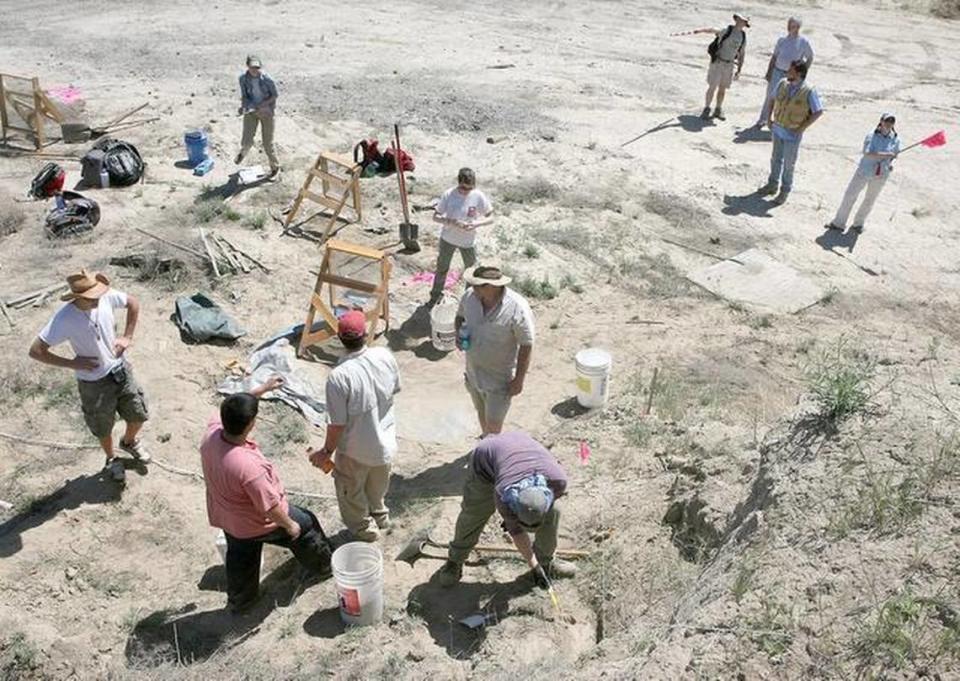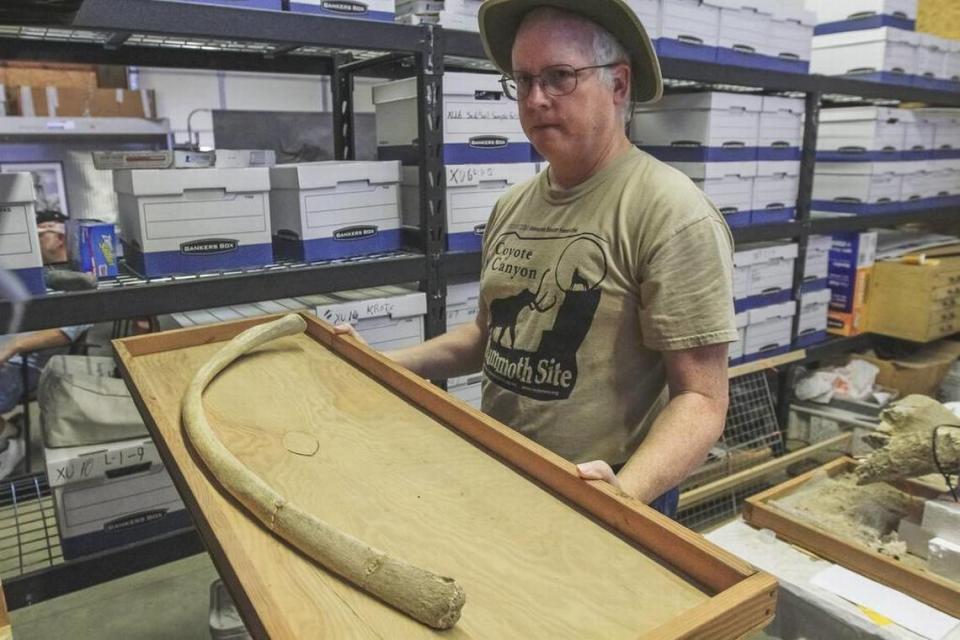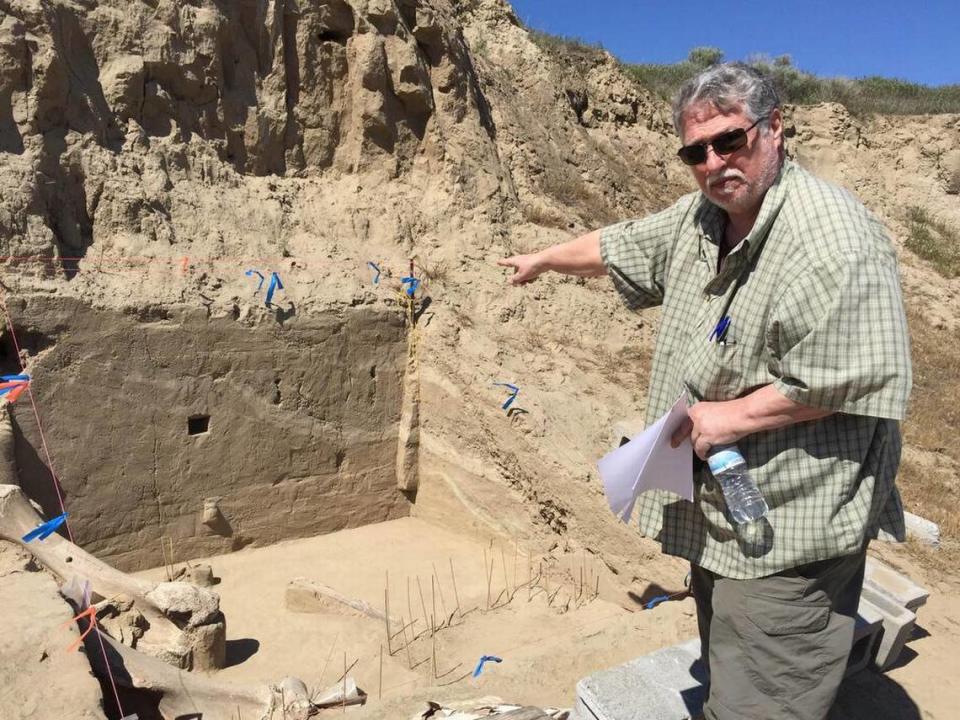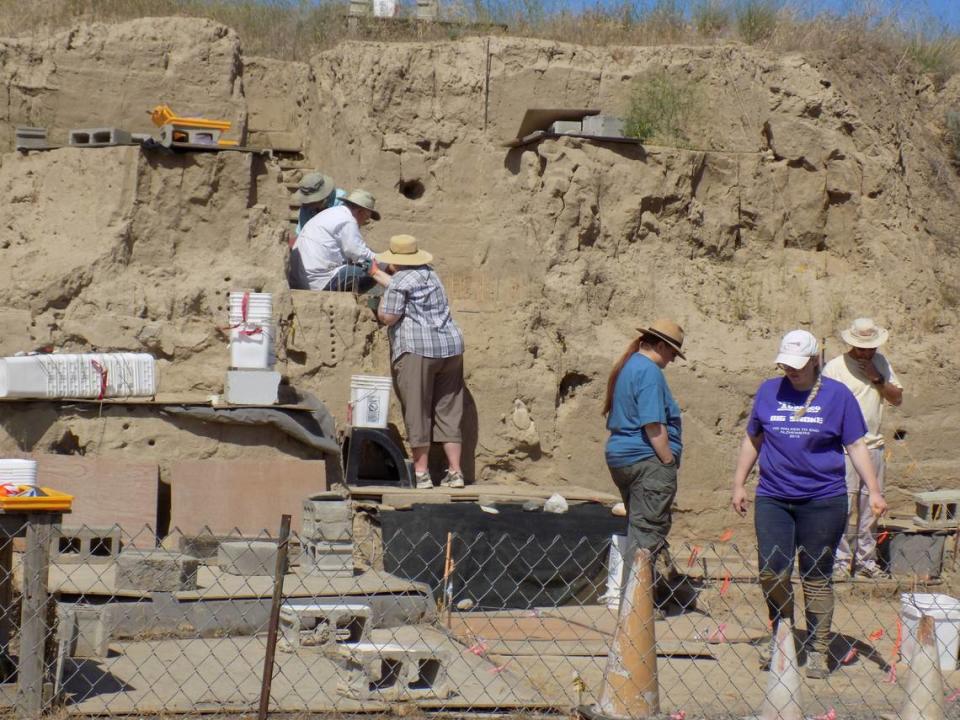Registration opens June 1 for the second half of the 2024 tour season of the Coyote Canyon Mammoth Site just outside Kennewick, Wash.
Tour slots for summer and fall months are expected to be snapped up quickly.
Visitors on the public tours of the site will observe the ongoing digging, participate in screening soil, see key specimens found and get a look at laboratory activities, along with a presentation about the history, discovery and findings at the site.

Those on group tours will see the site on days when no digging is being done, but will tour the dig and screening areas.
The nonprofit MCBONES operates the site as an outdoor classroom and laboratory for natural science research in an all-volunteer effort.
Not only are the bones of an ice age mammoth being unearthed, but small objects, such as beetle wings, ground squirrel teeth, mice bones and mollusk shells, found in the soil are being collected.


Changes in objects at different levels of the dig provide information about the changing environment of Eastern Washington and the Tri-Cities area over thousands of years, including the environment at the time the mammoth lived 17,000 years ago.
Mammoth bones
The mammoth being unearthed appears to be a male that was likely about 40 years old when it died.
During the ice age, flood water backed up as it hit the narrow Wallula Gap to cover what is now the Tri-Cities. The dig site is at an elevation of about 1,060 feet, and floods may have been deep enough to reach the area about seven times.
The mammoth could have been drowned in the flood, and then the carcass could have been deposited on the hillside as waters receded.


Among bones already retrieved are a left shoulder blade, two upper front leg bones, two tail bones, two foot bones, and numerous ribs and vertebrae.
Tours, including public tours and those arranged for groups, are $10 per person. Tours typically last about 90 minutes. Directions to the site are not provided until registration to help prevent vandalism.


Money raised from the tours will be needed as MCBONES has radiocarbon dating done on some of its finds. It also will need to pay for professional identification of some microbiology species.
To register for a tour go to mcbones.org/public-tours.html.
If you are interested in volunteering at the site, contact Gary Kleinknecht at [email protected].
Source Agencies
